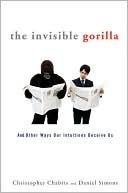More on this book
Community
Kindle Notes & Highlights
“The real purpose of scientific method is to make sure Nature hasn’t misled you into thinking you know something that you actually don’t.”
Expertise helps you notice unexpected events, but only when the event happens in the context of your expertise.
Nearly eighty years later, social psychologists Roger Brown and James Kulik coined the term flashbulb memories to characterize these vivid, detailed memories for surprising and important events.35 The name, by analogy to photography, reflects the idea that the details surrounding surprising and emotionally significant events are preserved in the instant they occur: Events meriting permanent storage are imprinted in the brain just as a scene is imprinted onto film. According to Brown and Kulik, the memory is “very like a photograph that indiscriminately preserves the scene in which each of us
...more
They spoke first. For 94 percent of the problems, the group’s final answer was the first answer anyone suggested, and people with dominant personalities just tend to speak first and most forcefully.
Dr. Keating advises looking for the following trait in a doctor: “They need to be able to say ‘I don’t know’ and mean it.”
the illusion of knowledge led them to confuse the familiarity they had gained from repeated exposure to the concepts in the course with an actual understanding of them.
“everything should be made as simple as possible, but not simpler.”
“This ‘curse’ happens because subjects have trouble switching their point of view to consider what someone else might know, mistakenly projecting their own knowledge onto others.”
Unless your job is like Dr. Keating’s, and you know that you’re dealing with exceptional cases, focusing too much on the rare causes would be counterproductive.
Experts are, in a sense, primed to see patterns that fit their well-established expectations, but perceiving the world through a lens of expectations, however reasonable, can backfire.
There is one final pitfall inherent in turning chronology into causality. Because we perceive sequences of events as part of a timeline, with one leading to the next, it is hard to see that there are almost always many interrelated reasons or causes for a single outcome.


